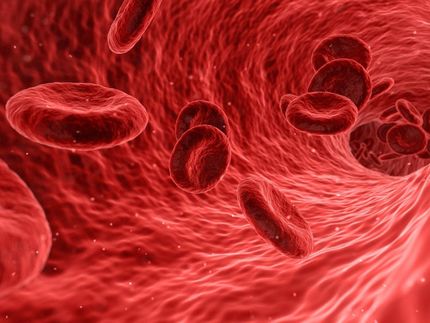AI tool improves diagnosis of leukaemia in children
Significant progress in personalised medicine: Researchers combine comprehensive clinical data in an easy-to-use platform.
Genetic changes are the driving force behind many types of cancer, including leukaemia. They have a strong influence on prognosis and treatment. A new AI-powered tool called clinALL is now set to revolutionise the way doctors diagnose and treat paediatric leukaemia. The tool combines genetic and clinical data in one easy-to-use platform. Professor Dr Anke K. Bergmann, Senior Consultant and Deputy Director of the Institute of Human Genetics at Hannover Medical School (MHH), Dr Michelle Tang and Dr Željko Antić are leading the project. Professor Bergmann's team works cooperatively in the international Leibniz Future Laboratory for artificial intelligence (LeibnizAILab). The Future Lab is funded by the Federal Ministry of Education and Research and coordinated by Leibniz University. In the Future Lab, researchers in the acute lymphoblastic leukaemia (ALL) sub-project are working on finding additional diagnostic and prognostic markers for ALL in children. They are pursuing an innovative approach with clinALL.
The challenge: data volume and complexity
The study included 1,365 patients with blood cancer, mainly paediatric leukaemia, who underwent routine genetic diagnostics using various standard tests. The increasing volume and complexity of sequencing data together with other clinical and diagnostic data, such as drug response or measurable residual disease, pose a challenge for efficient clinical recording and interpretation. The clinALL tool provides an AI-powered framework that integrates genomic and clinical data into a user-friendly interface. In this way, routine diagnostics are supported. In addition, insights can be gained for malignant diseases of the blood and lymphatic system. The study results can thus be used directly in clinical care.
New findings for patient care
"In this way, we were able to characterise 78 percent of patients who could not be identified using conventional methods. These patients are marked in grey in the figure and assigned to the colour-coded subgroups. In this way, we have helped to clarify difficult cases in particular," says Professor Bergmann. The human geneticist and head of the "AI4ALL" project at the Leibniz Future Laboratory points to an illustration. Other important patterns were also found with clinALL. For example, certain patient groups were identified in which the disease is more likely to return after treatment. Both diagnostics and therapy are becoming more precise. New cases are recognised and new subgroups can be identified. Despite the rather small number of cases in the study, the tool works very well and provides important findings with a strong influence on patient care. clinALL is already in use at the MHH.
Potential added value for developing countries too
"The tool enables the integration of comprehensive clinical data with affordable, targeted genetic tests. This makes clinALL interesting for small laboratories in developing countries too," emphasises scientist Dr Michelle Tang. Risk stratification and local decision-making would be improved and clinically relevant findings would be revealed in a timely manner. This represents a significant advance in personalised medicine for children with leukaemia.
In the study, targeted RNA sequencing of haematological neoplasms was carried out, primarily in paediatric ALL in cooperation with the "AIEOP-BFM ALL" study group at the University Medical Centre Schleswig-Holstein in Kiel, the "ALLTogether" study group at the University Medical Centre Hamburg-Eppendorf and the paediatric haematology and oncology department at the MHH. The findings were published in the journal "eBioMedicine - THE LANCET Discovery Science".
At the Comprehensive Cancer Centre (CCC) of the MHH, renowned scientists from various disciplines work hand in hand to research cancer, its causes and, above all, new treatment approaches. The CCC can look back on many years of international expertise in the field of basic research and translational research, which makes it possible to transfer findings from basic research into clinical application.
Original publication
Ming Tang, Željko Antić, Pedram Fardzadeh, Stefan Pietzsch, Charlotte Schröder, Adrian Eberhardt, Alena van Bömmel, ... Agata Pastorczak, Gunnar Cario, Bernhard Y. Renard, Martin Stanulla, Anke Katharina Bergmann; "An artificial intelligence-assisted clinical framework to facilitate diagnostics and translational discovery in hematologic neoplasia"; eBioMedicine, Volume 104
Other news from the department science
Most read news
More news from our other portals
See the theme worlds for related content
Topic world Diagnostics
Diagnostics is at the heart of modern medicine and forms a crucial interface between research and patient care in the biotech and pharmaceutical industries. It not only enables early detection and monitoring of disease, but also plays a central role in individualized medicine by enabling targeted therapies based on an individual's genetic and molecular signature.

Topic world Diagnostics
Diagnostics is at the heart of modern medicine and forms a crucial interface between research and patient care in the biotech and pharmaceutical industries. It not only enables early detection and monitoring of disease, but also plays a central role in individualized medicine by enabling targeted therapies based on an individual's genetic and molecular signature.























































